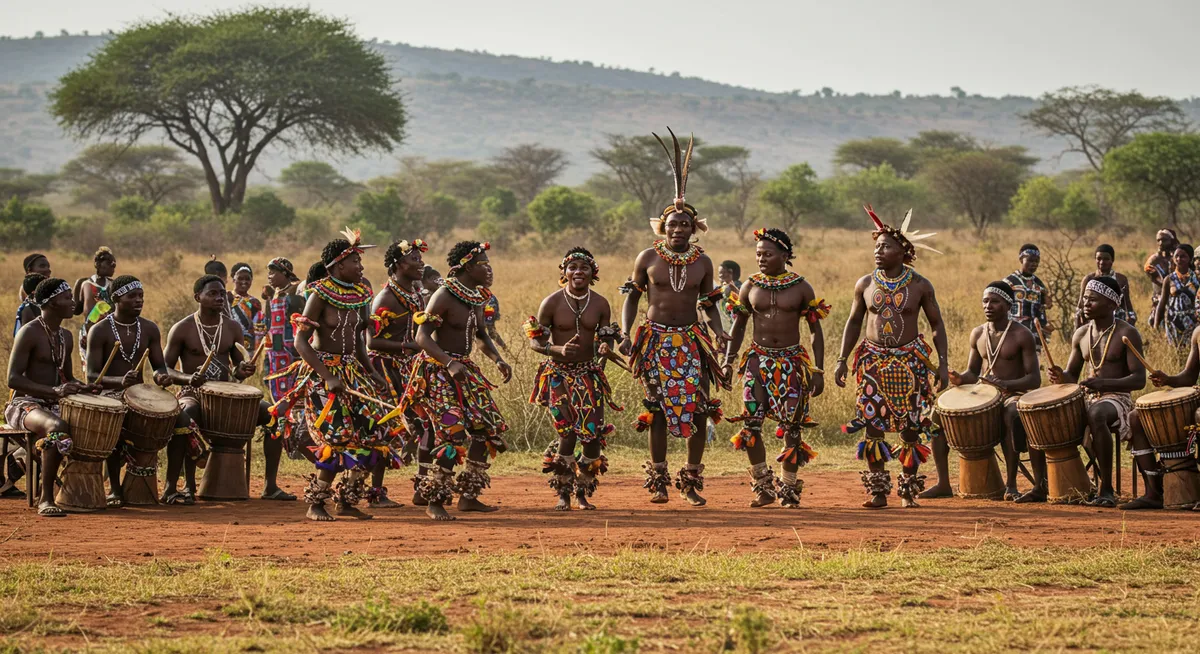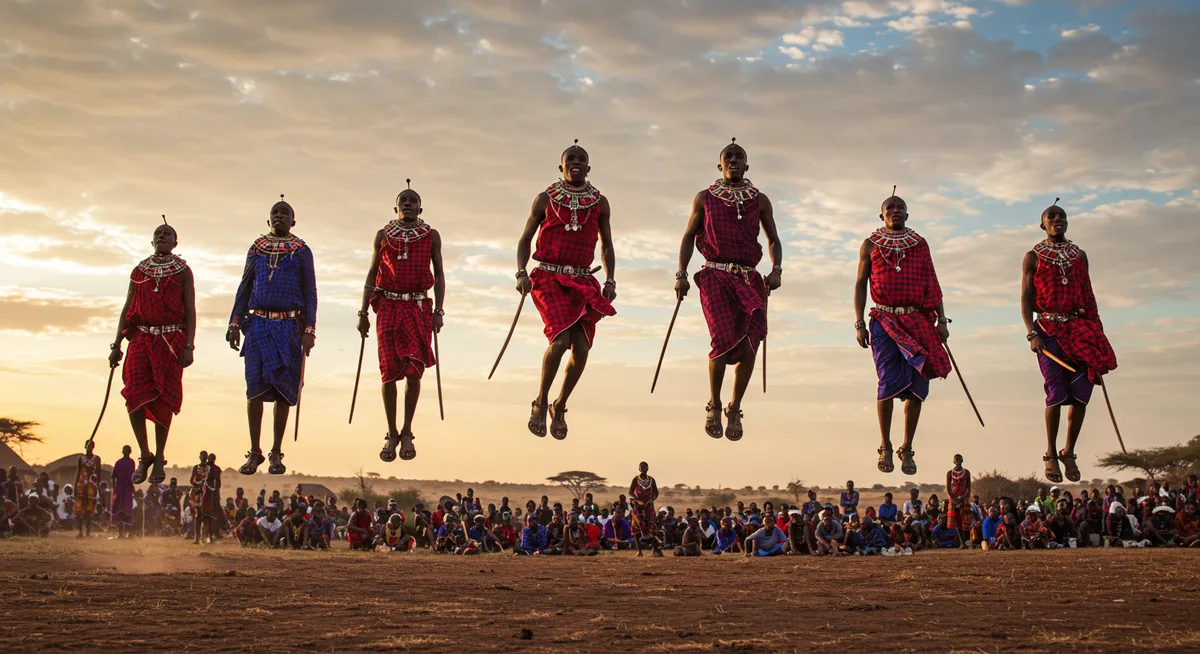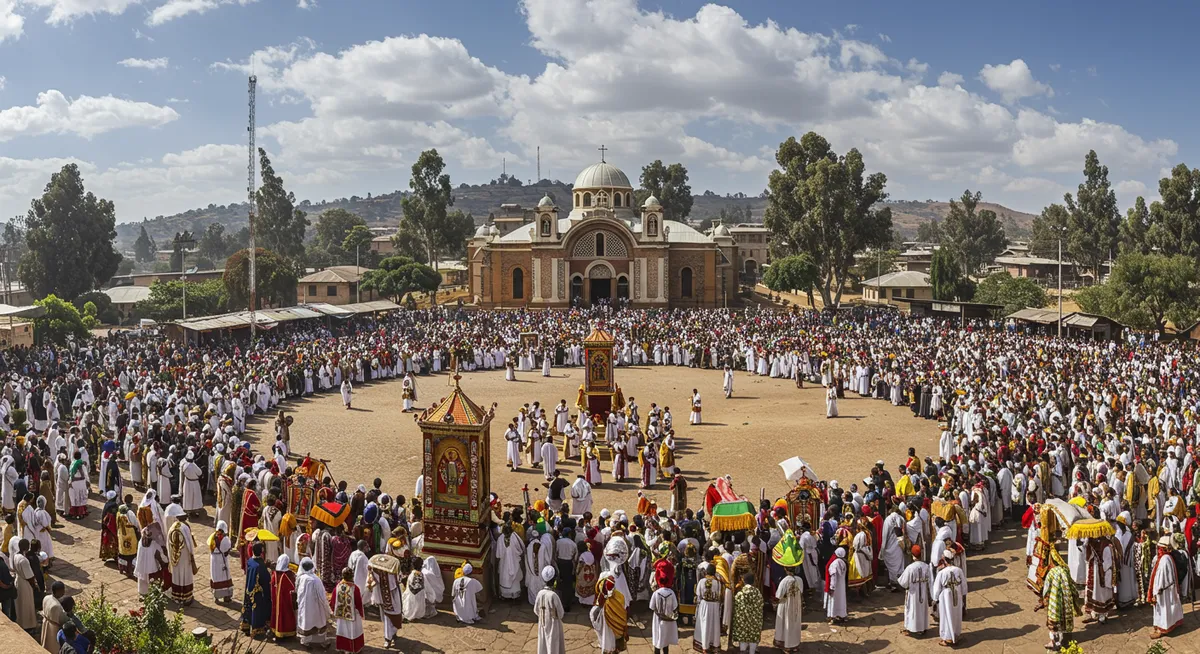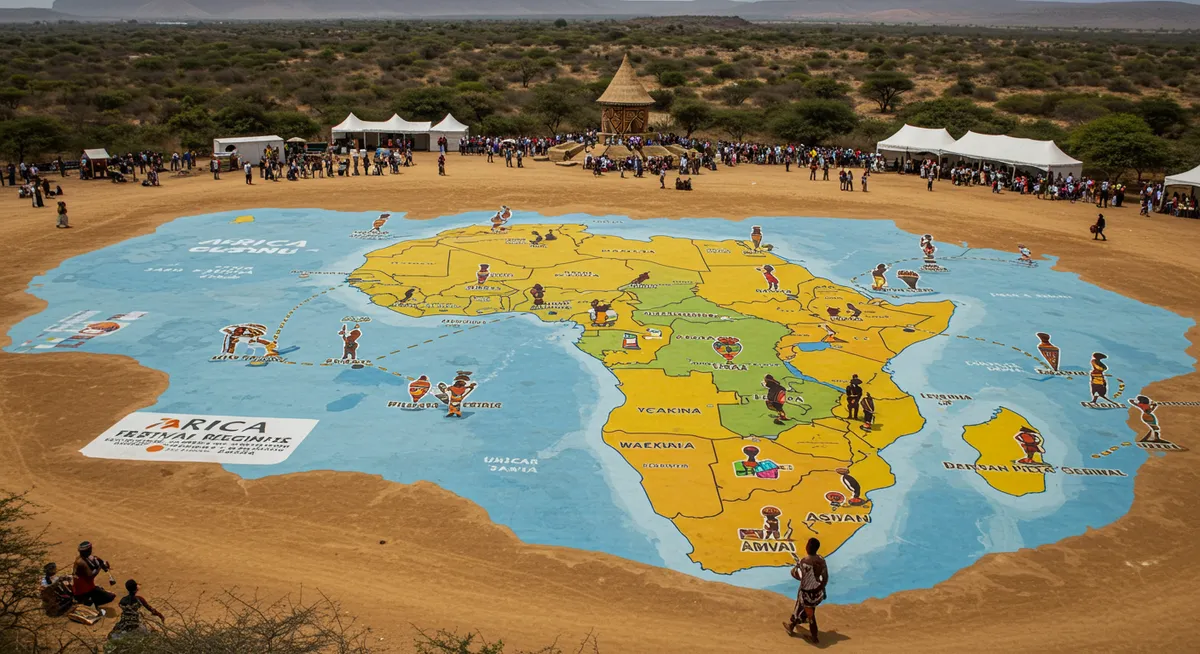African Cultural Festivals Guide | Tribal Gatherings & Modern Celebrations

African Cultural Festivals: Rhythms, Spirituality, and Community Celebrations
Africa's festival landscape pulsates with extraordinary vitality, where ancient traditions continue alongside innovative cultural expressions. From colorful desert gatherings in North Africa to elaborate masked ceremonies in West Africa and royal rituals in Southern Africa, the continent offers travelers unparalleled opportunities to experience cultures where music, dance, spirituality, and community remain powerfully interconnected. This guide explores Africa's most significant cultural festivals across different regions, providing context and practical information for authentic cultural immersion experiences.

The Rich Cultural Foundations of African Festivals
African festivals emerge from several foundational elements that have shaped the continent's diverse cultural expressions:
- Indigenous Spiritual Traditions: Many African festivals have roots in traditional belief systems honoring ancestors, natural forces, and community relationships
- Agricultural Cycles: Harvest festivals, rain ceremonies, and seasonal transitions remain vital celebrations across rural Africa
- Religious Influences: Christian, Islamic, and syncretic religious traditions have created distinctive festival expressions across different regions
- Royal and Political Traditions: Many communities celebrate historical kingship systems and traditional governance through elaborate ceremonies
Major African Festival Categories
African festivals can be broadly categorized to help travelers find experiences that match their interests:
Traditional Cultural Ceremonies
Ceremonies honoring ancestral traditions and cultural identity remain central to many African communities:
- Initiation Ceremonies: Coming-of-age celebrations from the Maasai's Eunoto ceremony to the Krobo Dipo ritual in Ghana
- Masquerade Traditions: West Africa's elaborate masked performances representing spirits, ancestors, and mythological beings
- Royal Festivals: Ceremonies celebrating traditional leadership from Ghana's Akwasidae to Swaziland's Umhlanga Reed Dance
- Warrior Celebrations: From the Wodaabe Gerewol in Niger to the Maasai jumping competitions of East Africa

Religious and Spiritual Celebrations
Africa's diverse spiritual traditions have created unique festival experiences:
- Islamic Celebrations: Distinctive expressions of Eid and Mawlid across North and West Africa
- Christian Festivals: From Ethiopia's Timkat to Ghana's elaborate Easter celebrations
- Traditional Spiritual Ceremonies: Vodun festivals in Benin, ancestral ceremonies in Southern Africa, and animist celebrations across the continent
- Syncretic Religious Events: Celebrations blending indigenous traditions with imported religions, creating unique cultural expressions
Harvest and Seasonal Festivals
Agricultural traditions remain central to many African communities, celebrated through distinctive festivals:
- Harvest Celebrations: From South Africa's First Fruits ceremonies to North Africa's date harvest festivals
- Rain Ceremonies: Rituals seeking favorable weather across drought-prone regions of the continent
- Fishing Festivals: Coastal and lake communities celebrate fishing traditions through distinctive ceremonies
- New Year Celebrations: From Ethiopia's unique calendar to North Africa's Amazigh celebrations
Contemporary Cultural Festivals
Modern Africa has developed vibrant new festival traditions celebrating contemporary expressions:
- Music Festivals: From Mali's Festival in the Desert to South Africa's Afrikaburn and Cape Town International Jazz Festival
- Arts Celebrations: Senegal's Dakar Biennale, Morocco's Fes Festival of World Sacred Music, and Nigeria's photography festivals
- Film Festivals: Major events in Egypt, South Africa, Uganda, and Morocco showcase African cinema
- Urban Carnivals: Cape Town's Kaapse Klopse, Nigeria's Calabar Carnival, and other vibrant street celebrations
African Festival Regions
African festivals reflect distinct regional characters shaped by geography, history, and cultural influences:
North Africa
Morocco, Tunisia, Egypt, Algeria, and Libya blend Amazigh (Berber), Arab, Mediterranean, and African influences:
- Morocco's Moussem Festivals: Seasonal saint's day celebrations featuring traditional music, horsemen demonstrations, and markets
- Egypt's Abu Simbel Sun Festival: Bi-annual phenomenon where sunlight illuminates temple statues, celebrated with cultural performances
- Tunisia's International Festival of the Sahara: Douz celebration featuring camel races, Bedouin weddings, and desert traditions
- Amazigh New Year: Indigenous North African celebrations marking the agricultural calendar
West Africa
Nigeria, Ghana, Senegal, Mali, Benin, and neighboring countries offer some of Africa's most visually spectacular festivals:
- Nigeria's Durbar Festivals: Northern Nigeria's horseback processions combining Islamic tradition with local culture
- Ghana's Homowo Festival: Ga people's harvest celebration featuring ritual banishment of hunger
- Benin's Vodun Festival: Ouidah's celebration of traditional spiritual practices with elaborate ceremonies and performances
- Senegal's Tabaski: Distinctive West African celebrations of Eid al-Adha with unique regional customs
East Africa
Kenya, Tanzania, Ethiopia, Uganda, and surrounding nations blend pastoral traditions with diverse religious influences:
- Ethiopia's Timkat: Dramatic Epiphany celebrations featuring processions with replicas of the Ark of the Covenant
- Kenya's Lamu Cultural Festival: Celebration of Swahili coastal culture with dhow races, donkey competitions, and traditional music
- Uganda's Empango: Coronation anniversary celebrations honoring the Toro kingdom's heritage
- Tanzania's Wanyambo Festival: Cultural celebration featuring traditional music, dance, and food from all regions

Central Africa
Democratic Republic of Congo, Cameroon, Gabon, and neighboring countries preserve distinctive forest and river traditions:
- Cameroon's Ngondo Festival: Sawa people's riverside gathering featuring sacred ceremonies and dugout canoe races
- Gabon's Mask Festivals: Traditions featuring Bwiti and other indigenous spiritual expressions
- Kongo Kingdom Celebrations: Traditional festivals honoring ancient royal traditions that spanned multiple modern nations
- Pygmy Forest Ceremonies: Seasonal celebrations marking hunting success and forest spirits
Southern Africa
South Africa, Botswana, Zimbabwe, Zambia, Namibia, and surrounding countries blend indigenous traditions with colonial influences:
- Swaziland's Umhlanga Reed Dance: Thousands of young women gather to honor the Queen Mother and preserve traditional values
- South Africa's Zulu Reed Dance: Similar tradition honoring virginity and preparing young women for marriage
- Botswana's Domboshaba Festival: Celebration of Kalanga culture featuring traditional food, music, and customs
- Namibia's Damara Festival: Cultural preservation through dance, music, and traditional food
Island Africa
Madagascar, Comoros, Mauritius, Seychelles, and Cape Verde offer unique blends of African, Asian, and European influences:
- Madagascar's Famadihana: The "turning of the bones" ceremony honoring ancestors through exhumation and celebration
- Mauritius' Cavadee: Tamil Hindu festival featuring colorful processions and devotional acts
- Cape Verde's Carnival: Distinctive African-Portuguese celebration with unique island variations
- Seychelles' Creole Festival: Celebration of the islands' mixed heritage through music, food, and arts
Planning Your African Festival Journey
Creating a memorable African festival experience requires thoughtful planning:
Seasonal Considerations
African festivals follow seasonal patterns that should guide your travel planning:
- Rainy Season Impacts: Many traditional festivals occur after harvest or before planting, often in dry seasons when travel is easier
- Regional Climate Variations: Africa's size means you can experience festivals year-round by changing regions
- Religious Calendars: Islamic lunar calendar and Ethiopian Orthodox calendar create distinctive festival timing
- Contemporary Festival Season: Many modern music and arts festivals schedule during optimal tourist seasons
Regional Festival Routes
Maximize your cultural experiences by planning itineraries around festival clusters:
- West African Masked Festival Circuit: Experience different masquerade traditions across neighboring countries
- North African Festival Route: Combine Moroccan moussems with Tunisian and Egyptian celebrations
- East African Highland Circuit: Ethiopian religious festivals combined with highland cultural celebrations
- Southern African Cultural Route: Traditional celebrations across South Africa, Swaziland, and Botswana
Practical Travel Considerations
Successful festival travel in Africa requires attention to practical details:
- Local Transportation: Research accessibility to festival locations, which may be in remote areas
- Accommodation Options: Book well in advance for festivals in smaller communities where options are limited
- Health Precautions: Update vaccinations and medications appropriate for specific regions
- Local Guides: Consider hiring guides with community connections for the most meaningful experiences
- Festival Permissions: Some traditional ceremonies may require advance permission or invitations

Cultural Sensitivity at African Festivals
Many African festivals have deep spiritual and community significance requiring respectful participation:
- Photography Guidelines: Always request permission before photographing ceremonies or individuals
- Appropriate Dress: Research and respect dress codes, which may be particularly important for religious events
- Sacred Spaces: Understand which areas or rituals may be restricted to community members
- Gift Giving: Learn appropriate ways to express gratitude when invited to participate
- Gender Considerations: Some ceremonies have specific gender roles and viewing areas
African Festival Highlights Calendar
While many African festivals follow agricultural or religious calendars with changing dates, this general timeline can help you plan:
- January: Timkat (Ethiopia), Cape Town Minstrel Carnival (South Africa)
- February: Ouagadougou Film Festival (Burkina Faso), Marrakech Popular Arts Festival (Morocco)
- March: Mask Festival (Ivory Coast), International Jazz Festival (Cape Town)
- April: Gnaoua World Music Festival (Morocco), Easter celebrations across Christian Africa
- May: Festival in the Desert (Mali - when active), Harare International Festival of the Arts (Zimbabwe)
- June: National Arts Festival (South Africa), Essaouira Gnawa Festival (Morocco)
- July: Durbar Festivals (Nigeria), Zanzibar International Film Festival (Tanzania)
- August: Reed Dance ceremonies (Swaziland/South Africa), Fez Festival of World Sacred Music (Morocco)
- September: Lake Malawi Festival (Malawi), Royal Ceremony of Akwasidae (Ghana)
- October: Festival on the Niger (Mali), Mombasa Carnival (Kenya)
- November: Benin's Vodun Festival, Africa Oyé (Nigeria)
- December: Diamonial (Senegal), Afropunk Johannesburg (South Africa)
Experience Africa's Living Cultural Heritage
African festivals offer travelers extraordinary opportunities to witness traditions that have shaped the continent's diverse cultural identities for countless generations. Whether you're drawn to the spiritual power of West African masquerades, the royal pageantry of Southern African ceremonies, the religious devotion of Ethiopian processions, or the musical innovations of contemporary festivals, there's a celebration that will transform your understanding of this extraordinary continent.
By approaching these celebrations with respectful curiosity and cultural awareness, you'll discover that African festivals provide some of the most profound and memorable travel experiences available anywhere in the world. The continent's unique blend of ancient tradition and contemporary innovation creates festival experiences that resonate with unparalleled emotional and cultural power.
Ready to experience African festivals?
Explore our detailed guides to specific African celebrations and start planning your cultural festival journey.
Check back soon for our upcoming spotlights on iconic African festivals including Morocco's Festival of Roses, Nigeria's Osun-Osogbo, and South Africa's AfrikaBurn.
Explore Cultural Festivals in Other Regions
African festivals celebrate ancestral connections, musical heritage, and vibrant communal gatherings. Expand your cultural exploration with our guides to other regions around the world:
Global Festival Guide
Return to our main guide to discover cultural festivals worldwide.
European Festivals
Discover North African influences in Mediterranean festivals.
Asian Festivals
Explore ancient trading connections between Africa and Asia.
Latin American Festivals
Discover festivals shaped by African diaspora traditions.
North American Festivals
See how African cultural traditions have influenced North American celebrations.
Middle Eastern Festivals
Explore the historical connections between North Africa and the Middle East.
Oceania Festivals
Compare indigenous celebration traditions.
If you're drawn to African festivals, we especially recommend exploring Latin American festivals that showcase African diaspora influences, or North American celebrations that demonstrate the cultural legacy of African traditions.